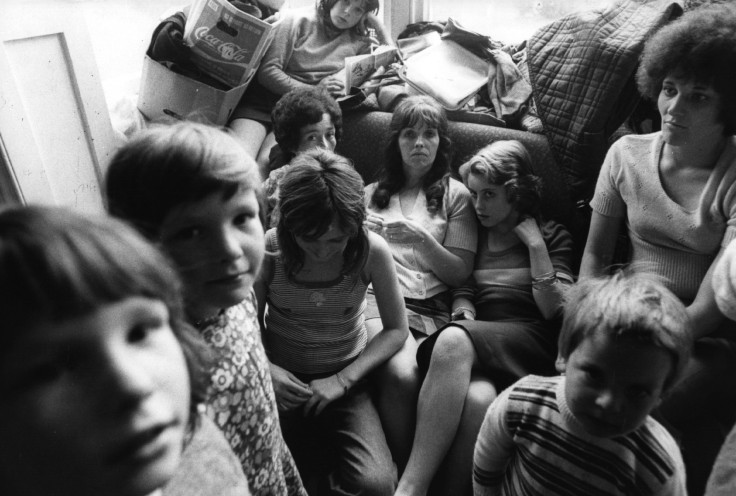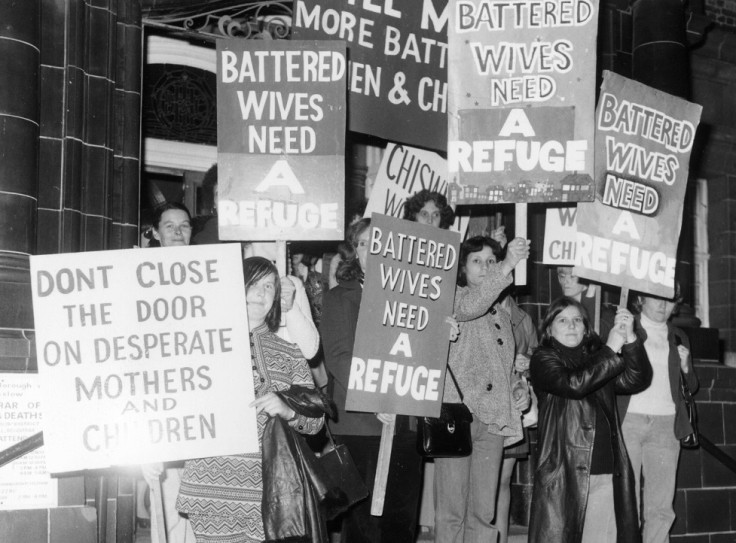Domestic Violence: Closure of Refuges Could Send UK Back to 'Cathy Come Home' Days

Domestic violence refuges are essential for safeguarding the lives of women and children against abuse. But as they close one by one, the network is under terrible strain. As local funding is cut, the country is entering a crisis that could set support for some of the most vulnerable back by four decades.
Born out of the feminist movement of the 1970s, Britain was one of the first countries to pioneer special safe houses for women fleeing physical and sexual violence at home. The first of its kind, Chiswick's Women's Aid for battered women was opened in London in 1971 by Erin Pizzey.
But today, on the International Day for the Elimination of Violence against Women, Women's Aid estimates 155 women and 103 children are turned away from the refuges that still exist.
According to Sandra Horley, chief executive of the national domestic violence charity Refuge, the closures pose the possibility of "returning to the days of Cathy Come Home".
Several reasons underpin why refuges are struggling, in scenes reminiscent of the 1966 BBC television play. In some areas, safe houses face closure in favour of preventative work and support in the community but many are shut with no alternative for victims of domestic violence.

Funding cuts
Other houses have had funding cut because they do not take men, while some have been shut entirely without alternative accommodation being provided. The Haven Wolverhampton, which has run refuges for 41 years, recently had its funding cut by £300,000 and is struggling to maintain services. It has been forces to reserve some of its places for men, even though it has not had a male referral so far.
Sandra Horley, chief executive of the national domestic violence charity Refuge, tells IBTimes UK refuge provision is under threat as a result of ongoing cuts to local funding and poor commissioning practices.
"Over the last few years, local authority funding for domestic violence services has been eroded as a result of ongoing austerity measures," she said. "Services for black and minority ethnic women have been hit particularly hard. Refuge has also seen the emergence of a number of worrying trends in commissioning practices."
Such commissioning practices include limiting numbers of non-local women able to stay in refuges.
"Some commissioners are demanding that refuge spaces be reserved for women from the local area," Horley adds. "This demonstrates a very poor understanding of the reality of domestic violence, which often forces women and children to flee across local boundaries in order to stay safe.
"Some contracts do not include any refuge provision at all, whilst others are replacing refuges with dispersed accommodation. This means that abused women and children are housed in isolated units, with little support to help them recover from the trauma of experiencing horrific, and often prolonged abuse."
Refuge is currently calling on the government to open a public inquiry into the failure of state agencies to protect women and children experiencing domestic abuse.

Cathy Come Home
Some commissioners are imposing restrictions on the length of time women and children are able to stay in a refuge, threatening the security of women who have uprooted their lives to escape violence.
Although the government has this week committed to a £10m national fund for refuges, women's rights groups have said it is vital this fund is matched with a commitment to exploring a new model of funding for refuges that supports them in the long term.
"We are in real danger of returning to the days of Cathy Come Home," Horley says. "Without adequate refuge provision, women experiencing domestic violence will be faced with a stark choice: flee to live rough on the streets with their children, or remain with their abuser and risk further violence – or worse."
Refuge contracts have encouraged women to move on after just weeks or days. According to Refuge statistics, 55% of women accessing the charity's safe houses had experienced threats to kill, and another 55% had been strangled or choked by their abuser. It is commonly known, yet nonetheless distressing, that two women a week are killed as a result of domestic violence.
"Empowering women and children to overcome trauma and rebuild their lives is highly specialist, intensive work – it takes a lot longer than just a few weeks," Horley adds.
"Refuges are so much more than just a roof over a head. Behind the walls of these houses, lives are transformed – our specialist refuge workers support women and children to rebuild every aspect of their lives, from helping them to stay safe, access health services, legal advocacy and immigration advice, and get back into work or education."
Isolation is another problem that refuges seek to tackle. Abused women and children are often isolated by their perpetrators, who deliberately cut off contact from friends or family to exert dominance and control.
"When women come to a refuge, they are able to share their experiences with other women who understand what they have been through. They realise – often for the first time – that they are not alone, and that they are not to blame for the abuse. Refuges facilitate this powerful recovery process," Horley says.
"Put quite simply, these services save lives."
© Copyright IBTimes 2025. All rights reserved.




















